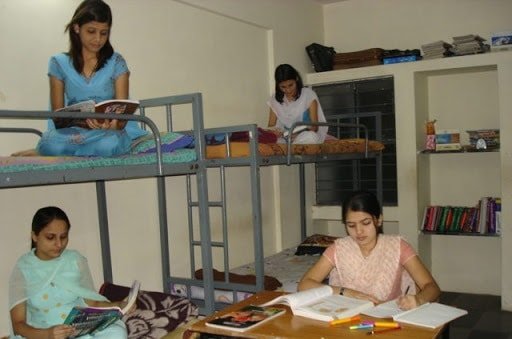Making women more powerful and helping them make decisions for themselves and attain financial stability, education, and access to good healthcare have a significant space and role. In addition, hostel facilities have also helped female students, employees, and professionals pursue their goals without worrying about their security and accommodation. This article is about the rules and regulations followed across India for ladies’ hostels that help in their proper functioning.
Ladies Hostel General rules and regulations:

Hostels that accommodate female students or professionals focus on maintaining the dignity of the institution thus, they set some of these general rules and regulations:
- Hostel residents are expected to behave with dignity (acceptable forms of actions) within the hostel premises.
- They are also expected to respect and show due courtesy to their fellow students, roommates, or staff working at the hostel.
- Sleeping together in one cot is not permitted.
- Hostel furniture should not be moved from one room to another; residents are held liable for any damages caused to the furniture placed in their respective rooms.
- Playing loud music, parties, and any form of loud entertainment is prohibited within the hostel rooms, as such conduct might make it harder to achieve a conducive living environment for fellow residents.
- Playing pranks, ragging, and other improper games are prohibited inside the hostel rooms as such actions might provoke fellow residents and make the living environment unsafe for them.
- Damaging properties, destructing, or intentionally altering any physical objects, buildings, vehicles, or spaces are prohibited. Residents involved in any such activities will be immediately evicted from the hostel. Vandalism also includes graffiti, breaking windows, and spraying paint. These acts have legal consequences as they are considered to be criminal offenses.
- Possessing or consuming intoxicants, lethal objects, drugs, alcohol, or weapons is strictly prohibited. The residents should be aware of the rules against possessing certain items that comply with local, state, and national laws and the severe legal consequences of breaking such laws.
Rules on cleaning duties and sanitation:
- Residents are expected to keep their rooms tidy and organized. Some hostel facilities maintain a cleaning schedule that includes sweeping, dusting, and maintaining overall hygiene. Residents should abide by such schedules and norms.
- The dedicated staff generally cleans common areas of the premises; however, the residents should clean such spaces on a rotational and shift basis if there are any shared spaces in the rooms.
- Waste should be disposed of based on guidelines where the wastage should be disposed of in designated bins and should not be mixed. For instance, recyclable waste and non-recyclable waste are expected to be disposed of in designated bins. Similarly, the waste generated by personal hygiene products should be carefully disposed of if they are inflammable or could potentially harm others.
- The residents should clean the bathrooms and toilets inside the rooms on a shift basis, and the cleaning schedule and norms established by the hostel facilities concerning toilet sanitation should be followed. Laundry storage and personal items should also be maintained properly, as they come with personal hygiene practices.
- Residents using the mess should abide by the rules expected to be followed at the mess or cafeteria. Causing any damage to the property in the mess can also cost certain fines or consequences.
- Residents should abide by the rules and regulations imposed by the sanitation department; if there are any rules related to pest control and prevention, the residents should carry out such measures responsibly.
The hostel facilities and the institution aim to promote a healthy environment conducive to academic and personal growth. A positive environment helps prevent conflicts and aids in a harmonious community living experience.
Conclusion:
Female hostel facilities have offered aspiring female professionals a unique community setting where women from diverse backgrounds come together, support each other, and build a supportive network for their future endeavors. With the rules and regulations mentioned in the article, and considering the technological advancements and cultural sensitivity, every female hostel facility could promote inclusivity, diversity, good access to health and well-being, and other facilities to the growth of womanhood in economic empowerment and career opportunities.

Rahul Kumar is a passionate educator, writer, and subject matter expert in the field of education and professional development. As an author on CoursesXpert, Rahul Kumar’s articles cover a wide range of topics, from various courses, educational and career guidance.



